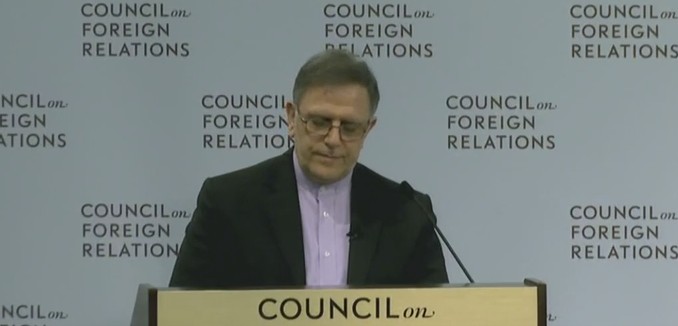The governor of Iran’s central bank warned that if the United States doesn’t facilitate Iran’s reintegration into the international financial system, the nuclear deal will “[break] up under its own terms,” The Wall Street Journal reported on Friday.
Valiollah Seif made his remarks in a 90-minute presentation in Washington, which this week hosted meetings by the International Monetary Fund and World Bank.
While the nuclear deal unfroze tens of billions of dollars of Iranian oil revenues, the Islamic Republic says that it hasn’t seen the financial benefit it expected to receive. U.S. prohibitions on Iranian access to the American financial system or the dollar has made it difficult for Iran “to process international money transfers and finance trade freely,” since the implementation of deal began in January, the Journal reported.
In a meeting with U.S. Treasury Secretary Jack Lew Thursday, Seif “focused on Iranian demands for more sanctions relief in the wake of the landmark nuclear accord,” according to officials familiar with the talks.
While the Obama administration has been considering giving Iran temporary access to the U.S. dollar to facilitate international trade, Seif argued that this would not be enough, and that Iran wants access to the U.S. financial system. “We want both sides of this agreement, especially the U.S., to take the required measures to remove the obstacles,” he said.
When asked about the Iranian charge that the U.S. is failing to keep its commitments as part of the nuclear deal, White House spokesman Josh Earnest emphasized, “The United States is fulfilling our commitments to the JCPOA, consistent with the letter and spirit of that agreement.”
The restrictions on Iranian access to the American banking system and the dollar are not related to nuclear sanctions, and therefore the U.S. is not obligated to lift them. Secretary of State John Kerry said last year at a Senate hearing:
So all of our other sanctions authorities remain in place, they are unaffected by this agreement, and Iran only said, if you read what it says, that they would treat the imposition of new nuclear related sanctions as the grounds to cease performing. But they are clear and we are clear that we have all other kinds of authorities and let me specific on that because it’s important for this whole debate to be clear. Even with the lifting of sanctions after eight years on missiles or five year on arms are the UN sanctions. It’s only the UN sanctions. We still have sanctions. Our primary embargo is still in place. We are still sanctioning them. And, I might add, for those things that we may want to deal with because of their behavior, for instance, Hezbollah, there is a UN resolution, 1701, the prevents the transfer of any weapons to Hezbollah. That will continue and what we need to do is make sure that we’re enforcing it.
The existing restrictions were imposed on Iran over its risk as a money laundering concern and its terror financing.
Mark Dubowitz, executive director of the Foundation for Defense of Democracies, said in a conference call last week that giving Iran even temporary access to the dollar to facilitate trade would erode what little leverage the U.S. still has.
Patrick Clawson, the director of research at the Washington Institute for Near East Policy, argued in a paper earlier this month that it was Iran’s corrupt business practices that kept it from integrating into the international financial system. Clawson quoted Seif, who acknowledged that Iran’s banking practices were “outdated” earlier this year.
Clawson also noted the following warning issued by the Financial Action Task Force (FATF), an intergovernmental body responsible for ensuring the integrity of the international financial system:
The FATF remains particularly and exceptionally concerned about Iran’s failure to address the risk of terrorist financing and the serious threat this poses to the integrity of the international financial system. The FATF reaffirms its call on members and urges all jurisdictions to advise their financial institutions to give special attention to business relationships and transactions with Iran, including Iranian companies and financial institutions. In addition to enhanced scrutiny, the FATF reaffirms its 25 February 2009 call on its members and urges all jurisdictions to apply effective counter-measures to protect their financial sectors from money laundering and financing of terrorism risks emanating from Iran.
Clawson recommended that the United States offer to help Iran come into compliance with international banking standards in order to clarify that Iran’s difficulties are not related to American sanctions.
[Photo: Council on Foreign Relations / YouTube ]




